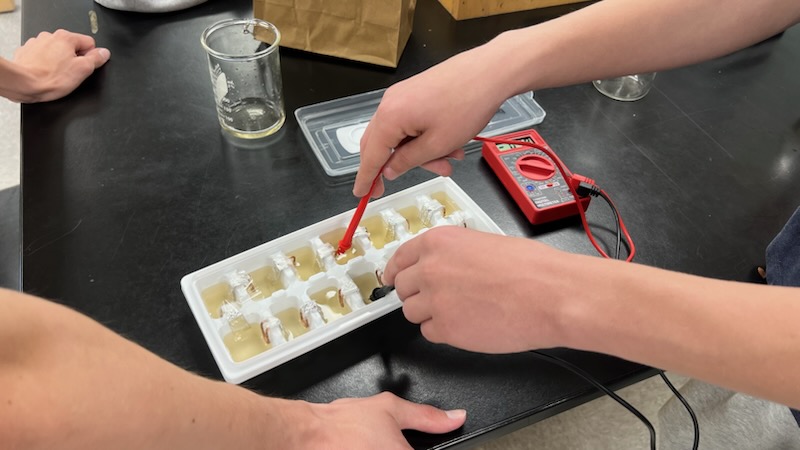Students erupt with moans and groans as they review another worksheet of homework. Almost daily, campus students complete short answer questions, fill in the blanks and answer true and false statements on worksheets that test comprehension of facts rather than encourage higher levels of learning.
“I hate getting stupid homework,” Victor Cabias, ’05, said. “The little worksheets are dumb and make me hate my classes even more. I can’t learn anything when my teachers don’t inspire me.”
Other students do not mind homework but would like to have assignments other than worksheets.
“I would like to see my teachers put some more thought into the kind of assignments they give,” Jason Harris, ’07, said. “I would rather have some kind of project or in-class presentation. Assignments that actually allow me to think and use my brain are so much better than busy work.”
Most teachers understand the concept and recognize their students’ frustration.
“When teachers give busy work it gives the impression to their students that they don’t value their time,” Molly Sargent, English teacher, said. “This is frustrating for the students who have many other, more important things to think about than a silly worksheet.”
Many students agree that these assignments prevent them from enjoying the learning process.
“When one of my teachers can’t come up with a worthwhile assignment I lose respect for them as a teacher,” Bethany Moore, ’04, said. “Some teachers are good about giving assignments that help me learn, but others are notorious for giving useless homework.”
Teachers try to build students’ minds through meaningful assignments and purposely try to avoid “busy work.”
“In looking towards my students’ best interest I try not to assign pointless homework,” Sargent said. “When teachers give stupid homework it kills any motivation the student might have had.”
Students see the difference between busy work and what they think are meaningful assignments.
“I thought high school homework would be hard but so far, junior high seems to be more challenging than high school,” Robin Dietrich, ’06, said. “Some worksheets, like history ones, seem to be more useful than, say, an English one.”
According to Sargent, every assignment given should have some type of value for students and increase their motivation and interest in the subject. She also believes good assignments will pay off in the long run.
For more information students and parents can contact the high school office at 299-1695, ext. 5 or visit www.naesp.org.
For more information on higher learning please refer to our previous article, “Blooms Taxonomy Promotes Critical Thinking,” which debuted Jan. 28, 2004.






